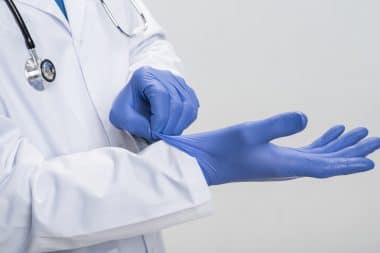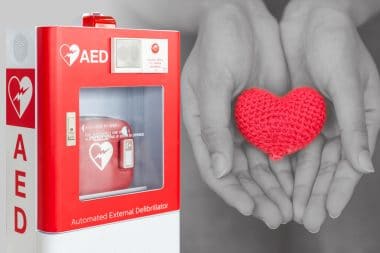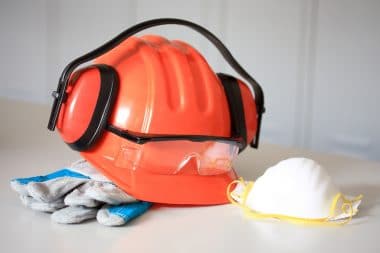Medical waste is also known as infectious waste, sharps waste, biomedical waste, or biohazardous waste from commercial businesses and healthcare facilities. If it is not treated, shipped, stored, contained, or handled properly, it will be dangerous to the environment and to your health.
Federal, state, and local regulations on proper medical waste disposal are implemented so that these facilities have guidelines to follow. Since improper medical waste disposal is a serious matter, everyone needs to comply with the rules and regulations not only for compliance’s sake but also to avoid complications. You may not see the difference now, but you will soon benefit from just merely segregating your waste products properly.
Here is a list of the importance of medical waste disposal to your health:
-
You Can Avoid Acquiring Infections.
If sharps and infectious waste is not disposed of properly, you can be exposed to different types of infections. Take note that pathogenic microorganisms from infectious wastes can enter your body through the following:
- Ingestion
- Inhalation
- Mucous Membrane
- Cut, abrasion, or skin punctures
However, you can prevent getting infected with proper medical waste management. Sharps like needles and other tools that are exposed to viral blood infections and other blood-borne pathogens need to be treated before disposal. When treated, it lessens the risk of transmitting the disease from other people even when you’re exposed to it.
You must also use puncture-proof containers for needle sticks and other sharp objects. But it is important that you should not fully fill the container. Get rid of it when it’s 3/4 full to decrease your chances of getting punctures or cuts from loose sharps.
As a result, you can avoid exposure to the following infections if you follow the proper medical waste disposal protocol:
- Viral hepatitis A, B, and C from body fluids, feces, and blood
- Hemorrhagic fevers transmitted from bloody secretions and products
- Acquired Immunodeficiency Syndrome or AIDS from sexual and blood secretions
- Respiratory Infections from saliva and inhaled secretions
- Gastroenteric infections from vomit or feces
-
It Provides Protection From Radioactive Wastes.
If you’re handling radioactive wastes, the more that you need to dispose of it properly. Radioactive waste encompasses materials that are exposed to radiation or are naturally radioactive. Some examples include fuels from electricity generation or nuclear medicine activities from research laboratories or universities.
One of the worst adverse effects of improperly managed radioactive waste is its carcinogenicity. When you’re exposed to it, you’re likely to suffer severe health issues like cancer. That’s why you need to strictly follow the proper disposal of this type of waste. Below are the things that you can do:
- Segregate radioactive waste after identifying their levels of radioactive content.
- For liquid radioactive waste, use polyethylene carboys while solid radioactive waste must use polyethylene lining. They should be in waste collection bins that are foot-operated.
- All the bins must be labeled and segregated properly.
- Depending on the type of waste, you can either incinerate, concentrate and contain, delay and decay, or dilute and disperse.
As a result of proper radioactive waste management and disposal, you’ll minimize the risk of radioactive exposure and its carcinogenic or genetic side effects.
-
You Can Prevent Any Illnesses From Pharmaceutical Wastes.
Pharmaceutical wastes comprise drugs, contaminated, spilled, unused, and expired pharmaceutical products. They can become hazardous if they contain chemical properties that are harmful and dangerous to your health.
You can become intoxicated with the chemical contents upon exposure. Corrosive chemicals can also incur burns or injuries. You usually, you’ll get these effects when your mucous membranes, eyes, and skin came in contact with these hazardous wastes.
That’s why you must avoid doing the following when disposing of pharmaceutical waste:
- Do not give or prescribe expired pharmaceutical products to anyone, especially to a reverse distributor.
- Avoid flushing pharmaceutical chemicals down the drain or the toilet.
Instead, do these proper ways of disposing of pharmaceutical waste:
- Segregate hazardous from nonhazardous waste. Also, separate the liquid from solid pharmaceutical waste.
- Unwanted and outdated pharmaceutical drugs must be destroyed after they’re denatured. Destroy them by incinerating these drugs.
- Use proper color-coded containers for each type of waste product.
- Yellow containers are used for trace chemotherapy waste like medical gloves used when chemotherapy was administered, IV tubing, and empty medication vials.
- Black containers usually contain waste like drugs and other hazardous medications. These drugs are mitomycin, lindane, and warfarin.
- Blue containers are used for nonhazardous pharmaceutical waste. These are the ones left after all have been segregated according to their level of hazards.
-
You Can Reduce The Rate Of Birth Defects.
When you’re regularly exposed to ionizing radiation, drugs, and chemicals from medical wastes, you’re more likely to increase urinary levels of mutagenic compounds. As a result, the total number of birth defects or fetal loss increases.
Developmental problems and nervous system defects can come to the disruption of endocrine caused by exposure to genotoxic waste. Birth defects include the following:
- Heart and blood vessel defects
- Down syndrome and other chromosomal congenital anomalies
- Hypospadias or the baby boy’s urethra is not on the penis’ tip
- Gastroschisis or organs may exist outside the body of the baby
- Cleft palate or lip or a congenital split in the mouth’s roof
- Spina bifida or defects in some parts of the spinal cord, which can cause mental disorders or paralysis on the lower limbs.
Here are ways to manage your genotoxic waste properly:
- Sterilize non-recyclable waste exposed in genotoxic chemicals and drugs. For instance, before disposing of needles or gauzes exposed in genotoxic waste, you must sanitize them.
- You can use the process of autoclaving. It uses a medical autoclave that sterilizes objects and equipment. This way, a high temperature inactivates genotoxic spores, fungi, viruses, or bacteria.
- After autoclaving, you can dispose of the items as they are deemed safe. They can now go to the standard waste streams according to your state regulation.
Conclusion:
The most important thing you need to think of is protecting your health from this harmful waste. Without proper waste disposal, you’re more likely to be exposed to hazardous chemicals and pathogens that can gravely affect your health.
So, you must always follow the standard procedures when handling and disposing of medical waste. With such, you can avoid harming your health as well as the environment.








Reply